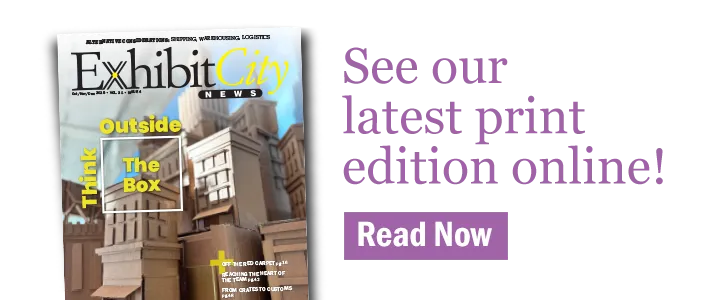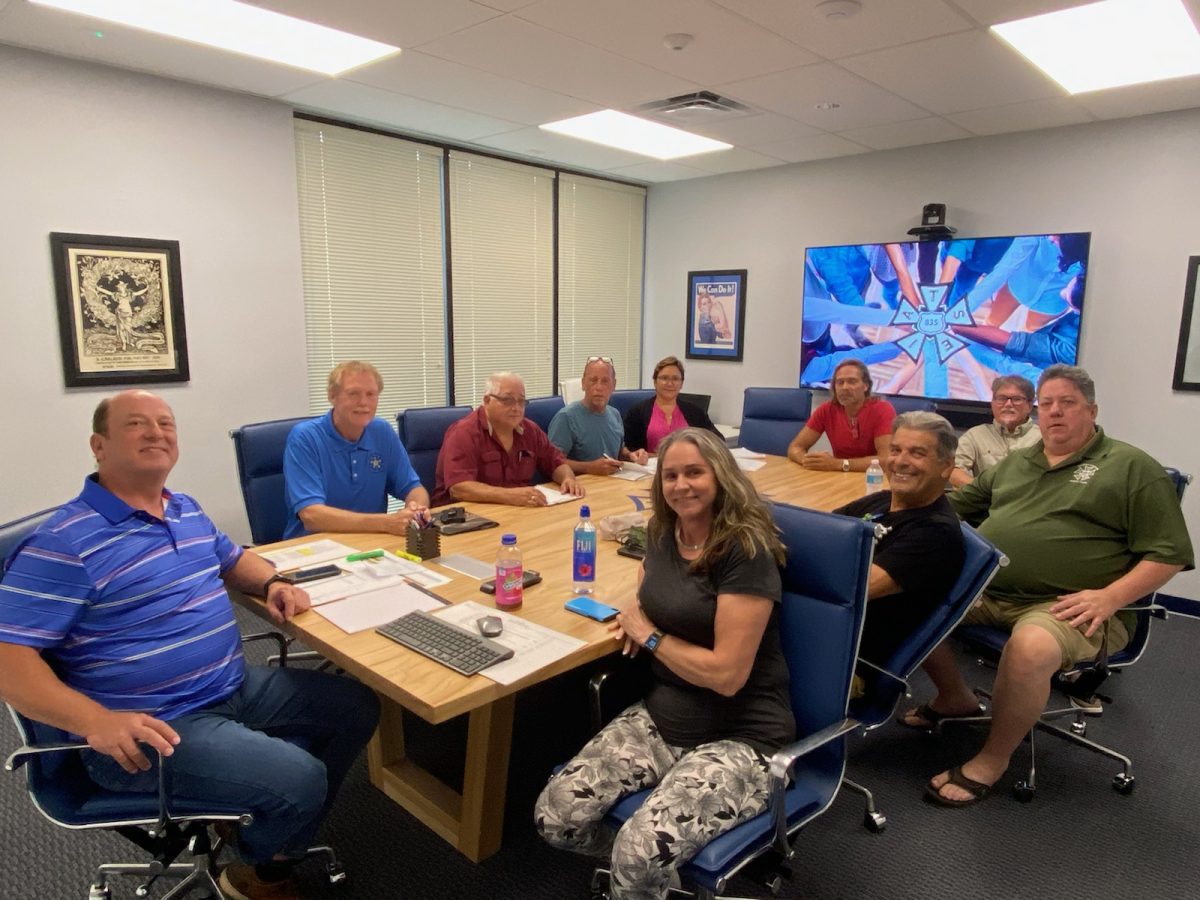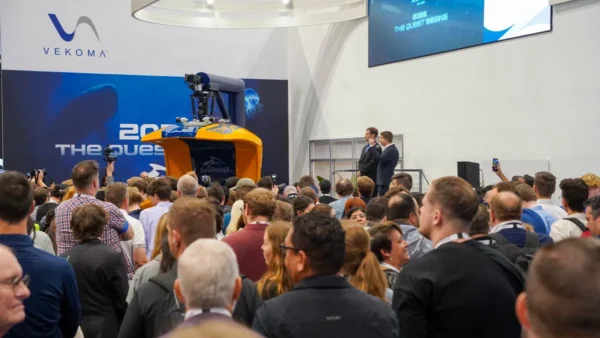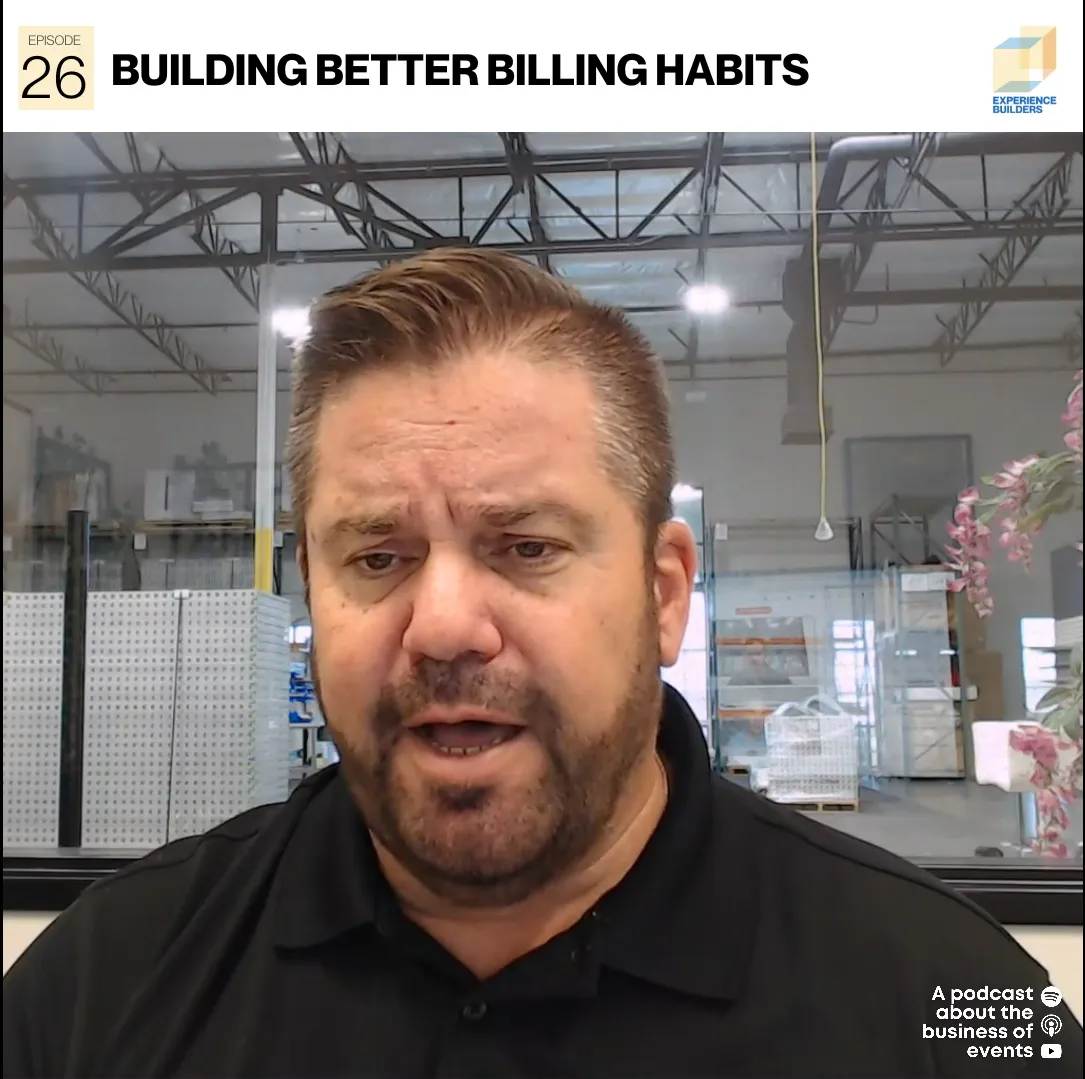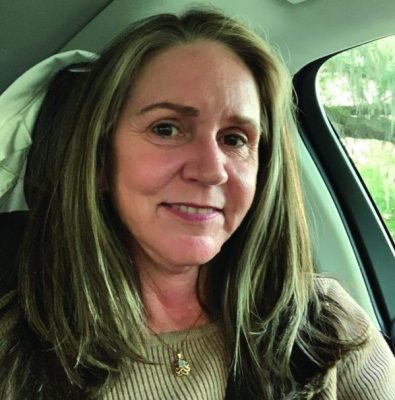 Kim Keables (pictured left) is the vice president of IATSE 835, an Orlando-based labor union that represents the dedicated men and women who move the freight, lay the carpets, hang the drapes, set the furnishings, fly the signs and install the exhibits for essentially every tradeshow in Orlando and throughout Central Florida. She has an interesting mix of talents. Not only does she represent her union with pride, she’s a nurse who recently has been working with patients in hospice care and their families. This combination gives her a unique insight into the pandemic’s effects on the tradeshow industry. ECN recently spoke with Keables about her union, her work in the healthcare field and how it all began.
Kim Keables (pictured left) is the vice president of IATSE 835, an Orlando-based labor union that represents the dedicated men and women who move the freight, lay the carpets, hang the drapes, set the furnishings, fly the signs and install the exhibits for essentially every tradeshow in Orlando and throughout Central Florida. She has an interesting mix of talents. Not only does she represent her union with pride, she’s a nurse who recently has been working with patients in hospice care and their families. This combination gives her a unique insight into the pandemic’s effects on the tradeshow industry. ECN recently spoke with Keables about her union, her work in the healthcare field and how it all began.
ECN: How did you get into the tradeshow business?
Kim Keables: I started being a stagehand for Kentucky IATSE [the International Alliance of Theater Stage Employees] when I was 15. I had the height and maturity to pass for 18, so my grandmother, who got me into the business, told me to fake my year of birth. I was 18 for three years!
I was doing wardrobe and making good money because it was a union gig. I did Broadway plays at night and matinees on the weekend, then I started doing carpet calls at night for conventions. Eventually, I heard that Orlando IATSE was expanding, so I moved here with my two kids.
ECN: And now you’re VP. What do you think is the most important part of your role?
KK: People just want someone who is going to represent them and make sure that what’s happening in our local is in the majority’s best interest.
ECN: In addition to preparing for tradeshows and serving your union, you’re a nurse. How did you get into healthcare?
KK: I went to nursing school, but never got my license because I was making better money at tradeshows. But then my partner got pancreatic cancer and I was taking care of him and his 90-year-old mother, so I took a refresher course and got my license. I just felt like I didn’t know enough to take care of them. I wanted to know who the best doctors and hospitals were from the inside.
I came back to the union after he passed but couldn’t go back to the floor because we met there. It was too close. So, I kept nursing for a while and then started stewarding tradeshow gigs again.
ECN: Are you in nursing now?
KK: I’m a hospice clinician. I talk to families who have received a devastating diagnosis and tell them how we can help them until the patient passes.
ECN: You must have a unique view of the pandemic. You’re seeing COVID patients in the hospital and have a front row seat to how to affects the tradeshow industry.
KK: Two weeks ago, I had a 22-year-old male and a 27-year-old female who both died of COVID. As I was leaving that, I walked through the COVID unit to get out of the hospital. There were eight full rooms, and seven of them had young people intubated and not vaccinated.
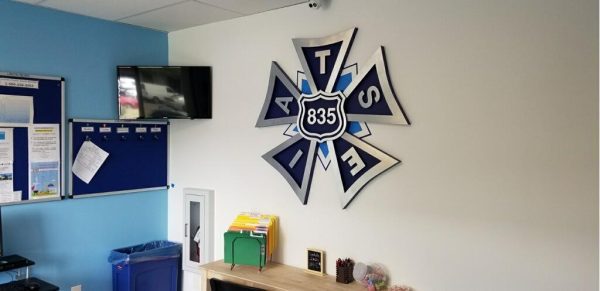 In order for the U.S. to function, people don’t have to get vaccinated, but if you don’t, you have to wear a mask. Our industry is in flux. We need to open up, we need to get people back to work. But we’ve had 21 shows cancelled so far because Florida is Delta [variant] heavy right now and people aren’t comfortable with the governor’s anti-mask policies. When things started to open up in the summer, we had several meetings saying the union will not defend you if you are not following the rules because this is what we need to do to get our industry back. Whatever they’re asking for is what they’re going to get. Florida is a tourist state, so it definitely needs these things opened up, even with restrictions, so people feel comfortable coming here.
In order for the U.S. to function, people don’t have to get vaccinated, but if you don’t, you have to wear a mask. Our industry is in flux. We need to open up, we need to get people back to work. But we’ve had 21 shows cancelled so far because Florida is Delta [variant] heavy right now and people aren’t comfortable with the governor’s anti-mask policies. When things started to open up in the summer, we had several meetings saying the union will not defend you if you are not following the rules because this is what we need to do to get our industry back. Whatever they’re asking for is what they’re going to get. Florida is a tourist state, so it definitely needs these things opened up, even with restrictions, so people feel comfortable coming here.
ECN: As a nurse, what’s your view of how Florida has handled COVID?
KK: This isn’t politics. This is life and death. I don’t want my business as a hospice nurse to be extremely busy. I want to help elderly people at the end of their life. I want to do symptom management. Now I’m looking at young adults in the hospital when a simple mask or a shot would have helped them. Our industry needs these young people. I had a rigger say that it’s time for young people to come in and learn how to lead and continue this business. But if we start losing our youth, we’re going to be in a lot of trouble.
ECN: Has the tradeshow industry weathered challenges like this before?
KK: I’ve been doing this for 40 years, and we didn’t have this much trouble after 9/11 or the 2008 [economic] crunch. We used to be bulletproof. If the economy was in trouble, we’d do medical shows. When the economy was flush, we’d do boat shows and car shows. The industry never shut down because there were always products out there. This is the first time I’ve ever seen our industry shut down.
ECN: How is your union helping members who are struggling right now?
KK: Stagehands don’t necessarily have computer skills. We use our brawn and creativity to put a show on. You have to be able to read a blueprint, but you don’t have to produce it.
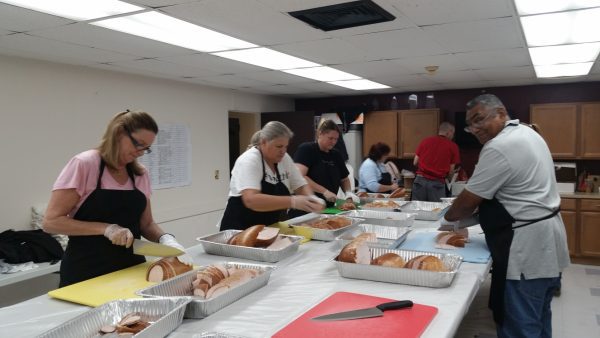 Our local had a healthy bank account going into this pandemic, and rather than shut our doors, we expanded our office. We put in a training system and started teaching computing skills. Our business rep, Mark Hardter, said that if this pandemic keeps conventions down, we’re going to start teaching plumbing and electrics. Mark is amazing. Instead of locking himself down, he thought of new ways to help our members.
Our local had a healthy bank account going into this pandemic, and rather than shut our doors, we expanded our office. We put in a training system and started teaching computing skills. Our business rep, Mark Hardter, said that if this pandemic keeps conventions down, we’re going to start teaching plumbing and electrics. Mark is amazing. Instead of locking himself down, he thought of new ways to help our members.
We also did wellness checks to see our how people were doing, and we started a food bank at the hall. Office staff would come out to people’s cars with gloves and masks and drop off spaghetti and sauce and tuna so people could make a week’s worth of meals.
You have to find what your community needs, and we really did help people. We found COVID-positive homes and we helped. We did a Christmas  drive to make sure kids under 18 received a Christmas gift.
drive to make sure kids under 18 received a Christmas gift.
ECN: What do you think the tradeshow industry should do going forward?
KK: We have to react appropriately [to the Delta variant], and we’re encouraging people to be vaccinated or wear their masks. I’m disappointed that people won’t get vaccinated. I wish people would take the vaccine so they won’t be the reason why someone else gets sick.
This is my wish: I want everyone to be able to make a living. I want them to have insurance and a dwelling with food on the table with electric on and transportation. I just want people to have some quality in their life because that builds a better society. Everybody needs to quit picking a side to get us moving forward. This should not be political. It’s a medical thing. And we should focus on not only our own physical health, but on the health of our community.
This story originally appeared in the Sept./Oct. 2021 issue of Exhibit City News, p. 36. For original layout, visit https://issuu.com/exhibitcitynews/docs/ecn_sept-oct_2021



